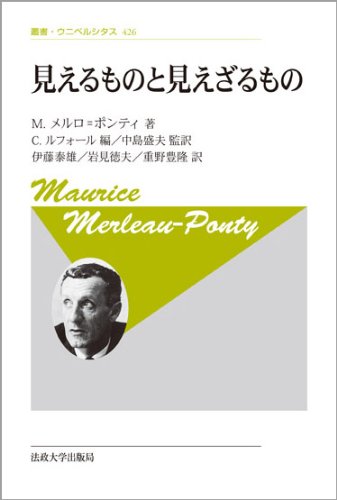- 著者
- 重野 豊隆
- 出版者
- 星薬科大学
- 雑誌
- 星薬科大学一般教育論集 = Hoshi journal of general education (ISSN:0289369X)
- 巻号頁・発行日
- no.30, pp.39-57, 2012
3 0 0 0 OA プラセボ反応と物語行為
- 著者
- 重野 豊隆
- 出版者
- 星薬科大学
- 雑誌
- 星薬科大学一般教育論集 = Hoshi journal of general education (ISSN:0289369X)
- 巻号頁・発行日
- no.34, pp.17-41, 2016-12-10
1 0 0 0 見えるものと見えざるもの
- 著者
- モーリス・メルロ=ポンティ著 クロード・ルフォール編 伊藤泰雄 岩見徳夫 重野豊隆訳
- 出版者
- 法政大学出版局
- 巻号頁・発行日
- 2014
1 0 0 0 OA インフォームド・コンセントにおける「非指示的」態度について
- 著者
- 重野 豊隆
- 出版者
- 日本医学哲学・倫理学会
- 雑誌
- 医学哲学 医学倫理 (ISSN:02896427)
- 巻号頁・発行日
- vol.21, pp.153-166, 2003-10-05 (Released:2018-02-01)
In the argument concerning informed consent, the concept of "non-directives" has been used as a protector of patients' self-determination. This concept is especially important for medical counselors. Ethical pradoxes arise when placebos are used both in medical experimentation and in a clinical setting. A placebo is a substance that the health care professional believes to be pharmacologically or biomedically inert for the condition being treated, the placebo effect sometimes be produced without nondisclosure, incomplete disclosure, or deception. Nevertheless, a placebo is less likely to be effective if used with the patient's knowledge. This raises the question of whether nondisclosure of placebo use is morally permissible. Most controlled trials are randomized clinical trials, which are generally preferred to observatinal or retrospective studies on grounds that their results have a higher degree of validity. Even if they had no preference for one treatment over the other, some patients may have refused conventional randomization because of its uncertainty. However, some critics suspect that disclosure of information became distorted, perhaps unconsciously, when the physician knew the assigned treatment in advance. Clearly, the process of obtaining informed consent under prerandomization merits unusually careful scrutiny to ensure adequate disclosure. On the other hand, a placebo is clinically given to a patient at the medical staffs' discretion without informing the patient about its use. The therapeutic use of placebo involves intentional deception or incomplete disclosure. This parodoxe is resolved when a patient has a chance to get a second-opinion.
1 0 0 0 OA 家族から見た患者の身体 : 「社会的人格」をめぐって
- 著者
- 重野 豊隆
- 出版者
- 日本医学哲学・倫理学会
- 雑誌
- 医学哲学 医学倫理 (ISSN:02896427)
- 巻号頁・発行日
- vol.19, pp.179-191, 2001-10-20 (Released:2018-02-01)
Michael Tooley has argued that the only beings, who have a right to life, are those who can conceive of themselves as distinct entities existing over time, in other words, "person". Tristram Engelhardt distinguishes "a person in the social sense" from "a person in the strict sense" as moral agent. He assigns "a social sense of person" to certain severely damaged humans, who cannot interact in even minimal social roles. What is "a social role" with regard to a terminal-stage patient? A patient in a persistent vegetative state and a brain-dead patient are not treated as "a person in the social sense" by T. Engelhardt. I discuss terminal-stage patients from the viewpoint of their families' experiences. This viewpoint may considers the patient's body, in a sense, as the expression of the patient's intention. Such a comprehension of the patient's body should be taken into account by medical staff.
1 0 0 0 OA 患者の自己決定権と医療者の裁量権 : 「身体をモノとみなす傾向」の抑制
- 著者
- 重野 豊隆
- 出版者
- 日本医学哲学・倫理学会
- 雑誌
- 医学哲学 医学倫理 (ISSN:02896427)
- 巻号頁・発行日
- vol.17, pp.66-76, 1999-10-01 (Released:2018-02-01)
The present paper discusses "a tendency to regard the human body as an object", in which many young students in Japan adhere to implicitly. Furthermore, medical staff also adhere to the same tendency as the students. It is the purpose of this paper to propose both restraints on the tendency. Firstly, this paper shows a implication in one's naive experience in death with dignity. Patients' aspect of the body shows two views of patients' ideas on the human body : my body as private property and the state of affairs of my body as a diseased person. Secondly, this paper criticizes medical staff for their theory that it is possible for them to interpret the patients' condition according to statistics. This theory shows that the medical staff view the body as an object of operation for them. Finally, we confirm the difficult point of the tendencey, which is that this tendency suppresses the individuality, condition and expression of the body.
1 0 0 0 OA プラセボ反応の無意識的過程についての認識論的考察
- 著者
- 重野 豊隆
- 出版者
- 星薬科大学
- 雑誌
- 星薬科大学一般教育論集 = Hoshi journal of general education (ISSN:0289369X)
- 巻号頁・発行日
- no.31, pp.33-46, 2013
1 0 0 0 OA 「意味付け反応」としてのプラセボ効果の再考
- 著者
- 重野 豊隆
- 出版者
- 星薬科大学
- 雑誌
- 星薬科大学一般教育論集 = Hoshi journal of general education (ISSN:0289369X)
- 巻号頁・発行日
- no.29, pp.19-38, 2011
